
Politics
09:31, 15-Mar-2018
Highlights of CPPCC 2018: New leaders, revised Charter
CGTN
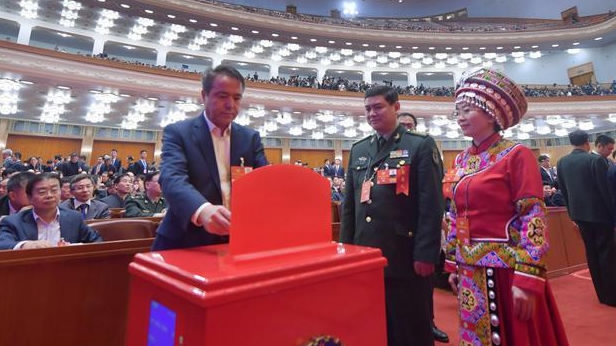
The 13-day first session of the 13th National Committee of the Chinese People's Political Consultative Conference (CPPCC), the top political advisory body, ended on Thursday with Wang Yang elected as the chairman, the Charter revised and over 5,000 proposals collected from members and groups.
Wang, China's newly-elected top political adviser, called for the unity of the Chinese people, regardless of their different parties, ethnicities, social statuses, and beliefs, during his speech to wrap up the CPPCC's session at the Great Hall of the People in Beijing.
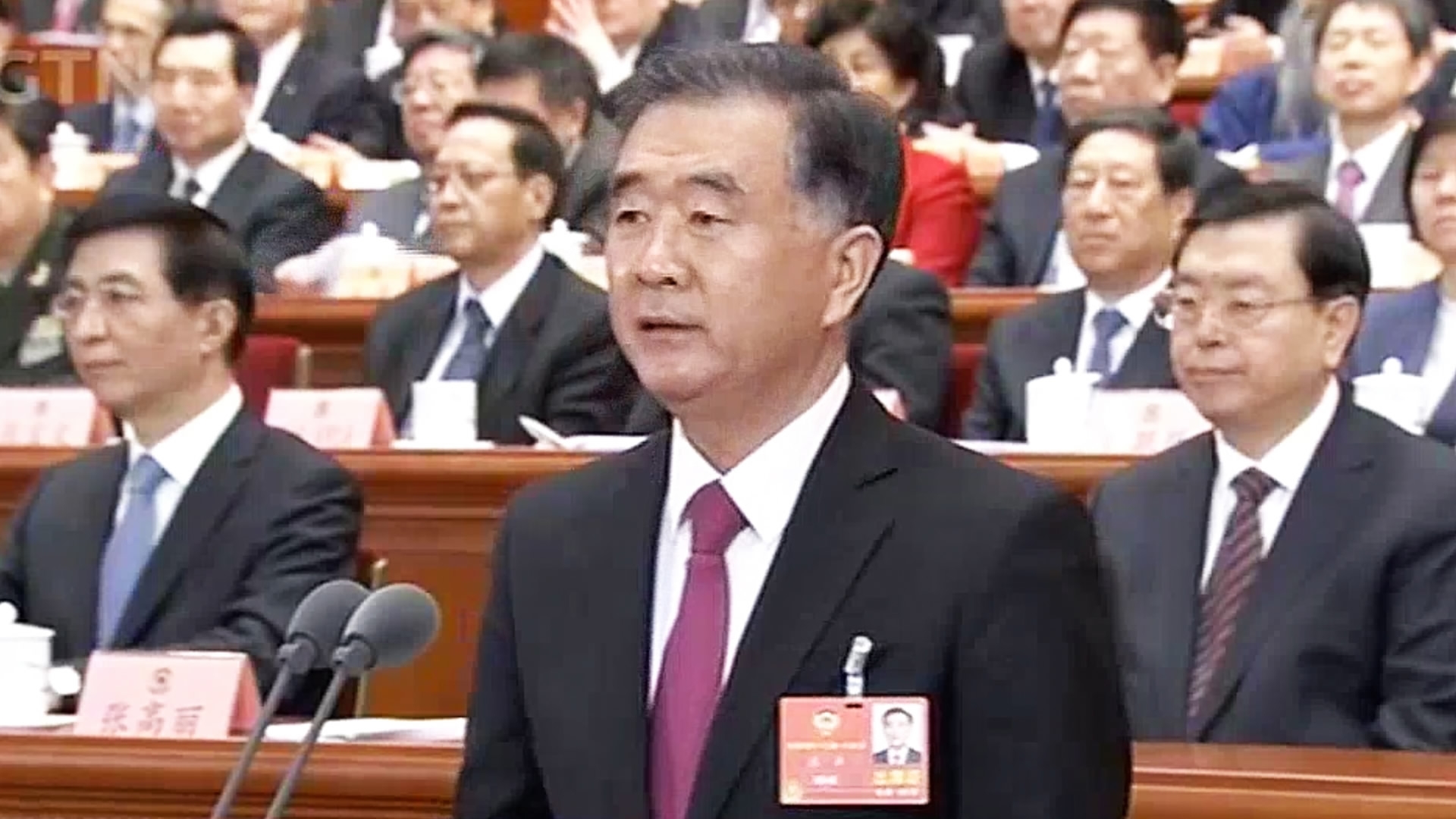
Wang noted that the Chinese people, both at home and overseas, need to stick together for the reunification and great rejuvenation of the Chinese nation. He stressed that the top political advisory body will uphold the CPC leadership and put people at the center of the developing strategies.
Here’s a look back of the hot topics of the CPPCC session.
Leadership reshuffle
CPPCC members serve for five years in a row, and this year marked another round of leadership reshuffle as Wang was elected as the chairman with 2,144 "yes" votes and no objections.
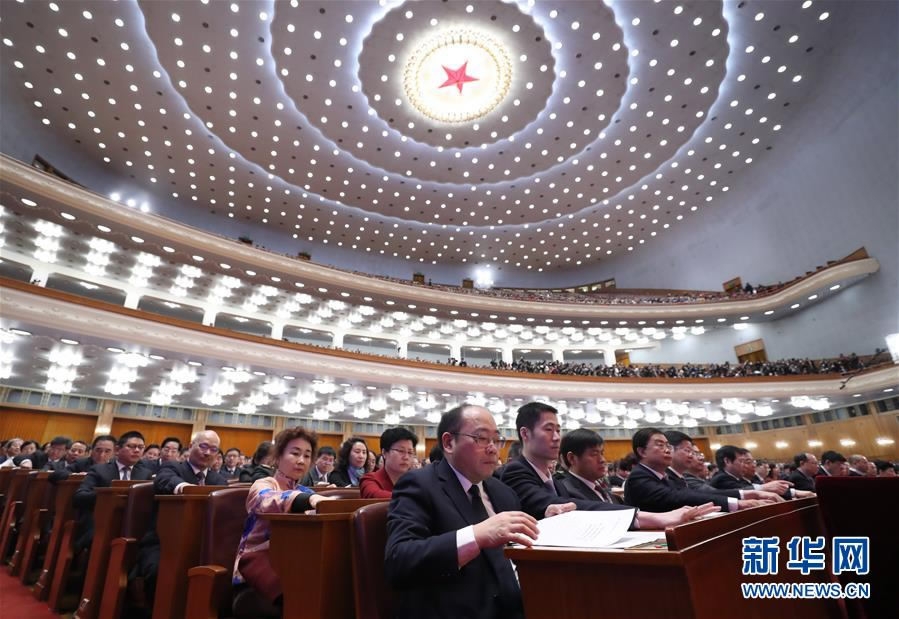
China's top political advisory body holds the closing meeting of its annual session in Beijing on March 15. /Xinhua Photo
China's top political advisory body holds the closing meeting of its annual session in Beijing on March 15. /Xinhua Photo
Xia Baolong will serve as the secretary-general of the CPPCC National Committee, while 24 vice chairpersons and 300 Standing Committee members were also elected by more than 2,100 CPPCC National Committee members.
Charter amendment
Xi Jinping Thought on Socialism with Chinese Characteristics for a New Era has been incorporated into the Charter as a guiding theory of the CPPCC.
The ideas of "consultative democracy" and "consultative supervision" were also added, as the former is a "strength unique to China's socialist democracy" and the latter will improve the implementation of government policy.
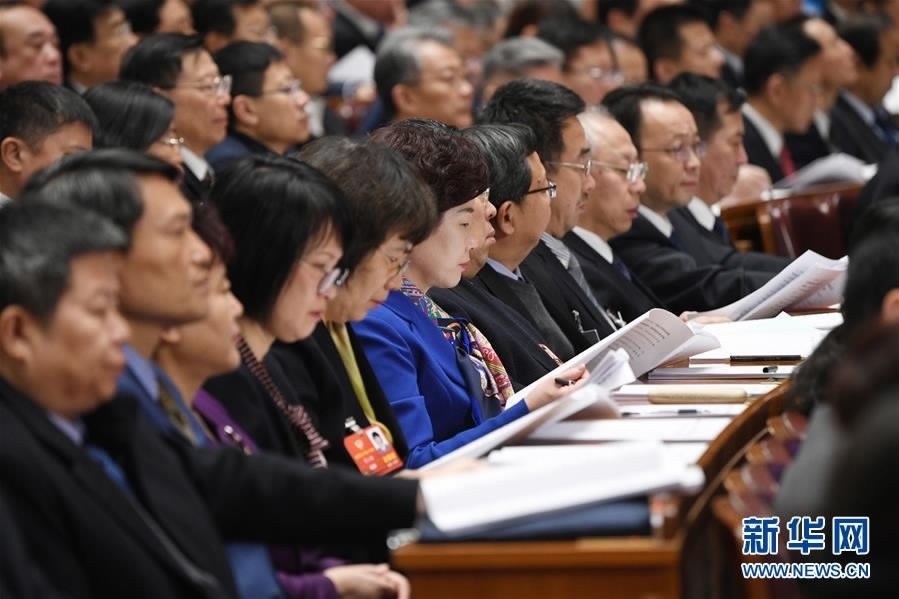
Political advisers listened to the briefing on constitutional revision during the CPPCC session on March 8, 2018. /Xinhua Photo
Political advisers listened to the briefing on constitutional revision during the CPPCC session on March 8, 2018. /Xinhua Photo
In addition, new content including "the new important thinking, views, judgments, and measures proposed at the 19th National Congress of the Communist Party of China (CPC)," which was held five months ago, was written into the charter.
New type of party system
The CPPCC serves as a key mechanism for multi-party cooperation and political consultation, under the leadership of the Communist Party of China (CPC).
As Xi Jinping pointed out during a panel discussion, as a basic political system of China, the CPC-led multi-party cooperation and political consultation system is a new type of party system growing from China's soil.
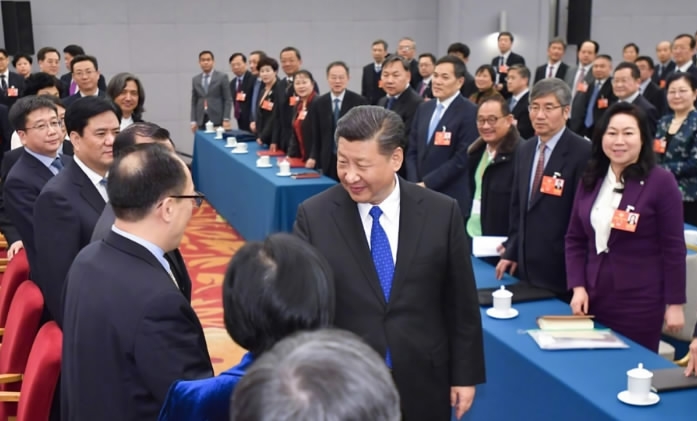
Chinese President Xi Jinping shakes hands with CPPCC members during a panel discussion at the first session of the 13th National Committee of the Chinese People's Political Consultative Conference (CPPCC) in Beijing, March, 4, 2018. /Xinhua Photo
Chinese President Xi Jinping shakes hands with CPPCC members during a panel discussion at the first session of the 13th National Committee of the Chinese People's Political Consultative Conference (CPPCC) in Beijing, March, 4, 2018. /Xinhua Photo
Xi met with political advisers from the China Democratic League, China Zhi Gong Party, the All-China Federation of Returned Overseas Chinese and advisers without any party affiliation on March 4.
Xi stressed that the new type can represent and realize the true, broad and enduring fundamental interests of Chinese people of all nationalities.
Proposals by members and groups
The CPPCC brings together representatives from all walks of life – economists, scientists, educators, doctors, diplomats, religious leaders and celebrities, who are all core advisers in China's decision-making processes.
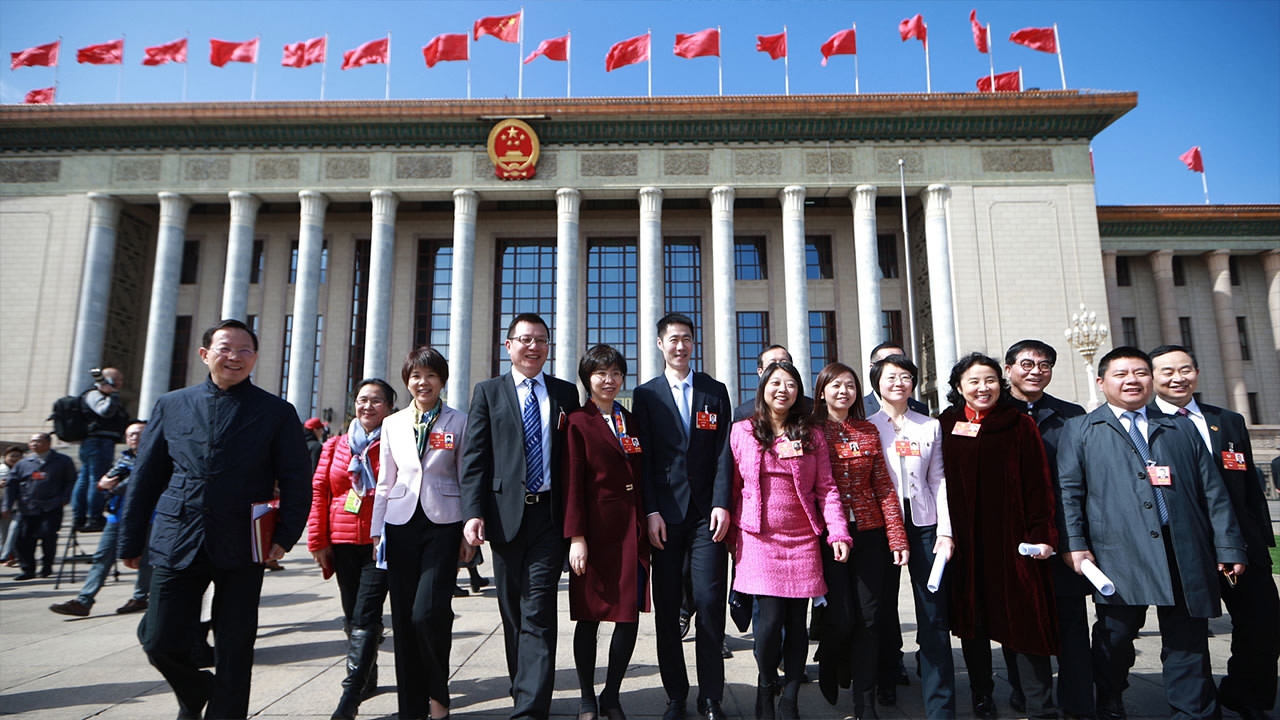
Members put forward proposals from five main categories, including economy, politics, culture, social and ecological construction.
A total of 5,360 proposals from both CPPCC members and groups were submitted during the first session of the 13th CPPCC National Committee, with roughly 83 percent of them put on files.

Many see this year’s session as a chance to deepen policies so as to better adapt to the new era.
(With input from Xinhua)

SITEMAP
Copyright © 2018 CGTN. Beijing ICP prepared NO.16065310-3
Copyright © 2018 CGTN. Beijing ICP prepared NO.16065310-3